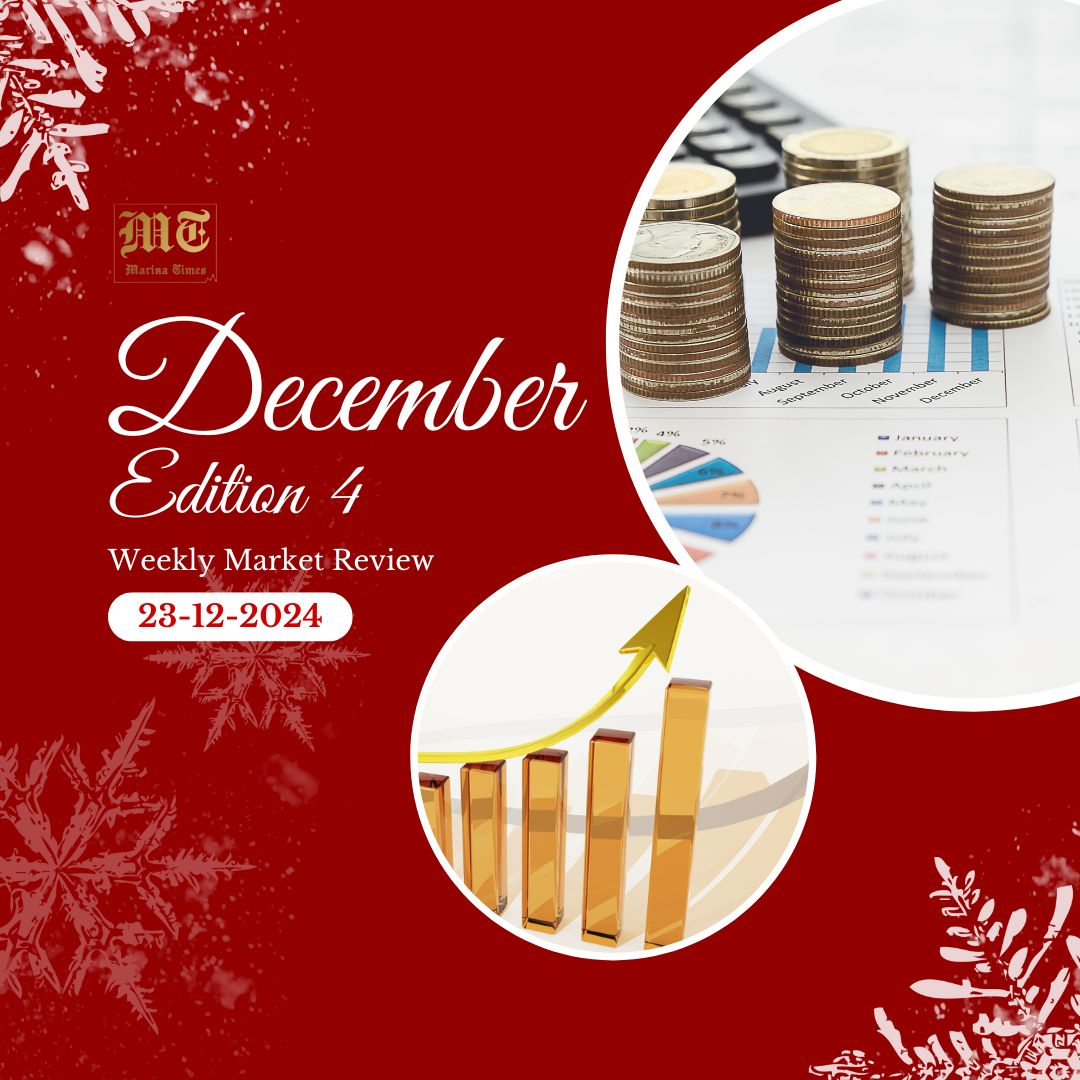

The Monetary Policy Committee (MPC) of the Central Bank of Nigeria (CBN) was without a doubt the most impactful decision maker for the Nigerian economy in 2024. At all its meetings this year, the Monetary Policy Rate (MPR) was hiked along with several adjustments to other monetary policy tools (including the Cash Reserve Ratio (CRR) and the corridor around the MPR). The MPR was hiked rates by 875 basis points all year—from 18.75% to 27.50%.
Despite the implementation of tight momentary policy parameters all year, inflation has remained stubborn (November 2024 inflation printed at 34.60% compared to 29.90% in January 2024). This has led many economists to adduce Nigeria’s peculiar inflation is attributable to the Foreign Exchange (FX) problem. It is no wonder, therefore, that most market stakeholders are hopeful about the introduction of the Electronic Foreign Exchange Matching System (EFEMS) which so far seems to have doused tension in the interbank markets. It is widely believed that with EFEMS implementation and the CBN’s efforts to supply the informal markets, the Naira will revalue progressively. To this extent, inflation may be less of a problem entering 2025.
On Wednesday, President Bola Ahmed Tinubu presented the Federal Government’s budget for the 2025 fiscal year before the National Assembly. The approved budget for 2025 totals ₦47.9 trillion, a notable rise from the ₦27.5 trillion allocated for 2024. This has raised questions in financial market circles about pragmatic funding sources for the budget.
During the week under review, there was a deficit of system liquidity throughout. At the Nigerian Foreign Exchange Market, the exchange rate traded at a high of $/₦1,570 on Friday, and at a low of $/₦1,520 on Monday. The market closed the week at $/₦1542 on Friday with a simple average traded at $/N1,538.89.
Last Monday, during the final Federal Government of Nigeria (FGN) bonds auction for 2024, the Debt Management Office (DMO) raised a total of ₦211.144 billion, which is about 1.76X of the initial offer. This figure represents a significant decrease of approximately ₦135 billion when compared to the amount allocated at the November auction.
Interestingly, unlike the past few months, where the stop rates saw significant increases at different times, the December auction saw only a modest 14 basis points rise on the April 2029 bond while the February 2031 bond maintained the same level. This subtle shift in rates could indicate a deliberate strategy by the DMO to moderate the interest rate as we approach the new year.
BONDS TENOR | APRIL 2029 | FEBRUARY 2031 |
AUCTION DATE | 16-12-2024 | 16-12-2024 |
SETTLEMENT DATE | 18-12-2024 | 18-12-2024 |
MATURITY DATE | 17-04-2029 | 21-02-2031 |
TENORS | 5-YEAR | 7-YEAR |
AMOUNT OFFERED (₦) | 60 BILLION | 60 BILLION |
SUBSCRIPTION (₦) | 67.457 BILLION | 211.363 BILLION |
AMOUNT ALLOTTED (₦) | 51.857 BILLION | 159.287 BILLION |
STOP RATES (%) | 21.1400 | 22.0000 |
PREVIOUS STOP RATES (%) | 21.0000 | 22.0000 |
Some market analysts believe that the DMO’s approach to rate hikes over the last few months has been a tactical response to attract sufficient investor demand amid tightening liquidity. These rate hikes, which have incrementally increased bond yields, were also likely aimed at providing attractive returns to investors, compensating them for the risks associated with holding long-term government bonds in an increasingly volatile market.
Going forward, the DMO might now seek to decelerate issuance yields, aiming for a more sustainable borrowing cost for the government in 2025. By keeping the rates relatively stable at this auction, it signals an attempt to provide market stability, as well as to encourage participation from a wider range of institutional and retail investors.
In a different development, Nigeria’s inflation has been on a troubling upward trajectory throughout 2024, with figures rising from 29.90% in January to 34.60% in November—albeit short-lived declines for some months. The last quarter of the year has seen a particularly sharp increase, with inflation climbing from 33.88% in October to 34.60% in November. This steady rise reflects ongoing structural challenges within the Nigerian economy, including supply-side constraints, the effects of currency depreciation, and the broader implications of global economic conditions such as energy prices and food insecurity. The rise in inflation in Nigeria has had far-reaching consequences such as diminishing purchasing power, increasing the cost of living, and putting immense pressure on monetary authorities to respond.
The rising inflation in Nigeria has led the Central Bank of Nigeria (CBN) to take aggressive actions through its Monetary Policy Committee (MPC), raising the MPR by 875 basis points in 2024. These measures aim to curb inflation and stabilise the value of the Naira against the Dollar. The CBN Governor, Olayemi Cardoso, has stated that the MPC expects inflation to start easing in 2025, due to these monetary interventions. However, the success of these measures will depend largely on external factors such as oil production levels and domestic policy adjustments.
Looking at the budget for the year 2025, one of the key highlights is the projected inflation rate of 15%. This target represents a significant challenge, considering the inflationary trends observed in 2024, particularly with Nigeria’s inflation reaching 34.6% in November. The government’s projection of 15% inflation suggests a strategic and audacious plan to moderate inflation through various policy measures, which may include further tighter monetary policies and other initiatives. However, achieving this target will likely require careful management of prices, as well as addressing structural inefficiencies within the economy.
Another critical aspect of the budget is the proposed GDP growth target of 4.6% for 2025—bearing in mind that Nigeria’s economy only expanded by 3.46% year-on-year in Q3 2024. The growth target is a daring one, especially given the challenges Nigeria has faced in recent years, including low productivity, high unemployment, and infrastructure deficits. However, if realised, a 4.6% GDP growth would signal a significant improvement in the country’s economic performance, driven by reforms in key sectors such as agriculture, manufacturing, and technology.
Moving on, the budget also includes important assumptions regarding oil, which remains a critical revenue source for the Nigerian government. The exchange rate for the 2025 budget is set at ₦1,500 to the US Dollar, speaking to the ongoing concerns over currency stability amidst economic uncertainties. The government is also targeting an oil price of $75 per barrel, which aligns with the current market dynamics. An estimated oil production output of 2.06 million barrels per day is projected, which indicates a steady output expectation despite the challenges of oil theft, infrastructure decay, and fluctuating global demand. This production target is crucial for funding the budget, as oil remains a major source of government revenue.
In the global markets, the recent interest rate cuts by the US Federal Reserve, which reduced the Federal Funds Rate from 5.5% (at the beginning of the year) to 4.5% by December 2024, is likely to have a significant impact on the continued issuance of Eurobonds, particularly those denominated in US Dollars, by Nigeria and other emerging markets. Since interest rates play a critical role in determining the cost of borrowing in the international market, including the yields on Eurobonds, a lower US Federal Reserve rate typically results in lower borrowing costs globally.
With the Fed’s decision to cut rates by a total of 100 basis points in 2024, the cost of borrowing in Dollars tends to decrease. This decision may also have an indirect impact on the value of the US Dollar relative to other currencies. For Nigeria, which faces significant foreign exchange pressures, the weaker US Dollar (if it results from the rate cuts) could ease some of the pressure on the Naira.
Moreso, the US Federal Reserve’s rate cuts are likely to have a positive impact on Nigeria’s continued issuance of Eurobonds. These rate cuts could lead to lower borrowing costs, increased investor interest, and more favourable conditions for issuing debt on the international markets. The overall impact will depend on how effectively the government manages these risks and uses the proceeds from Eurobond issuances to boost economic growth and stability.
As the year draws to a close, the outlook for the Nigerian financial markets in 2025, as well as for global financial markets, is shaped by several key factors bordering on inflation trends, interest rate movements, fiscal policies, and the global economic environment. Nigerian financial markets in 2025 are likely to face persistent inflationary pressures at the beginning of the year.
Speculatively, the CBN might maintain its tight monetary stance in the early months of 2025 to ensure that inflation is brought under control, though this may dampen liquidity in the short term. The key interest rate could remain elevated to prevent inflation from spiraling further, which would have implications for borrowing costs in the financial system. This will likely affect lending rates, consumer spending, and investment decisions in the private sector.
In the coming year and in our local markets, the outlook for 2025 will be shaped by the dual challenge of managing inflation and boosting economic growth amid global and domestic uncertainties. The financial markets will likely experience some volatility, especially in the currency and equity markets, but the lower global interest rates could provide opportunities for more favourable Eurobond issuances.
Globally, financial markets will remain focused on central bank policies, inflation trends, and the stability of commodity markets. With slower growth in developed economies and robust performance in emerging markets, there will be an ongoing search for higher returns, which could benefit emerging economies like Nigeria—provided they can manage risks associated with debt, inflation, and currency instability.
Looking ahead, many are hopeful that Nigeria’s inflation rate will moderate slightly as 2024 draws to a close. A slowdown in inflation could provide some relief to the central bank and influence its decisions in the coming year. However, even with the potential for inflation to ease in the short-term, it is clear that the global economic outlook is being reshaped by the long-term consequences of inflationary pressures.
While inflation may not yet be a global economic pandemic in the strictest sense, it is undoubtedly a widespread challenge with far-reaching implications. With central banks across the world having to deal with these pressures, the coming year will be crucial in determining whether inflation can be brought under control or whether it will continue to exert its influence on the global economy.